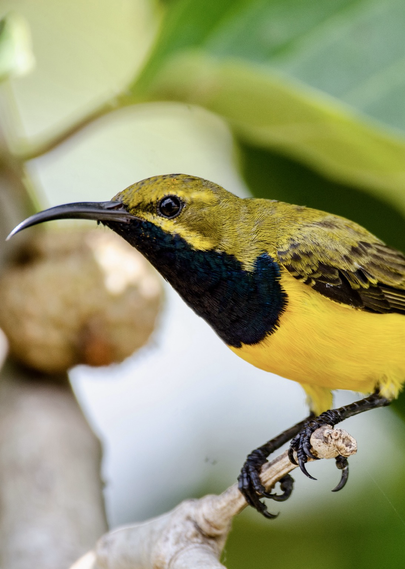Zeitpunkt Nutzer Delta Tröts TNR Titel Version maxTL Do 10.10.2024 00:00:02 39.533 +1 1.568.940 39,7 ohai.social 4.3.0... 500 Mi 09.10.2024 00:00:08 39.532 +5 1.567.318 39,6 ohai.social 4.3.0... 500 Di 08.10.2024 00:00:03 39.527 +3 1.565.637 39,6 ohai.social 4.3.0... 500 Mo 07.10.2024 00:00:01 39.524 0 1.564.088 39,6 ohai.social 4.3.0... 500 So 06.10.2024 00:05:10 39.524 0 1.562.581 39,5 ohai.social 4.3.0... 500 Sa 05.10.2024 00:00:29 39.524 -3 1.561.388 39,5 ohai.social 4.3.0... 500 Fr 04.10.2024 00:00:00 39.527 +2 1.560.249 39,5 ohai.social 4.3.0... 500 Do 03.10.2024 00:01:33 39.525 +3 1.558.798 39,4 ohai.social 4.3.0... 500 Mi 02.10.2024 00:00:06 39.522 +1 1.557.686 39,4 ohai.social 4.3.0... 500 Di 01.10.2024 00:15:14 39.521 0 1.556.181 39,4 ohai.social 4.3.0... 500
D C Fitzgerald (@tangledwing) · 12/2022 · Tröts: 2.305 · Folger: 310
Do 10.10.2024 03:28
Olive-backed Sunbird, Cinnyris jugularis, or Yellow-bellied Sunbird, found from Southern Asia to Australia. #birds #nature #photo #biology #wildlife

Olive-backed Sunbird, Cinnyris jugularis, or Yellow-bellied Sunbird, found from Southern Asia to Australia. Males display bright yellow underparts and a blue-black throat, while females are olive-green with a yellow belly. They primarily feed on nectar but also consume insects, especially when feeding chicks. This species adapts well to human environments and is classified as Least Concern by the IUCN, though it is protected in Thailand under wildlife preservation laws.
[Öffentlich] Antw.: 0 Wtrl.: 2 Fav.: 0 · via Mastodon for iOS